The cannabis industry grows each day but one thing remains glaringly unchanged since its inception: it’s mostly white. This is nothing new, and it represents a larger issue across just about every industry existing in the United States and Canada. But the state of indigenous cannabis, specifically, is often overlooked.
The legal cannabis industry represents a huge business opportunity for many tribal communities. But that doesn’t mean the rest of the world, particularly governing forces, have made sovereignty over tribal cannabis easy.
Underrepresented in the legal industry, overrepresented in arrests
Indigenous people are underrepresented in the US and Canada in a plethora of categories, but not when it comes to arrests. Indigenous people are among several demographics that are significantly overrepresented in cannabis arrest data.
In the Canadian city of Regina, Saskatchewan, indigenous people were nearly nine times more likely to be arrested for cannabis possession than white people between 2015 and 2017, despite a similar rate of use. This was the case in four out of five Canadian cities analyzed in an investigation.
The figures are just as dismal in the United States. In Washington state, American Indian and Alaskan Native people were 1.6 times more likely to be arrested for cannabis possession between 2001-2010. Additionally, indigenous drivers in Washington state are four times more likely to be searched by the police than their white peers. In South Dakota, Native Americans made up 8.9% of the 2016 population yet made up a whopping 29.3% of possession arrests, despite, yet again, a similar rate of use.
Today, cannabis is federally legal across Canada and legal on a state level in Washington. To the optimistic (albeit, sometimes naive) outsider, this legalization may represent a chance for those most heavily affected by cannabis prohibition to join the legal industry and profit from recreational cannabis sales.
To those who have seen social equity programs in states fail to meet expectations, the idea of indigenous people reclaiming their role in the industry is met with skepticism. This gets especially complicated when you look at the history of tribal laws conflicting with both Canadian and US federal laws.
The US and Canada both have many diverse, culturally-unique tribes with their own sets of laws and customs. The legal cannabis industry doesn’t begin to reflect this diversity and is instead overwhelmingly run by well-off, white entrepreneurs. Native Americans and First Nations people who want a slice of the cannabis industry must navigate a number of unique hurdles.
Opening a dispensary as a sovereign nation
Tyler Bob, the founder of Mary Jane’s Pure Cure, had first-hand experience with regulatory hurdles when he began the process of opening a dispensary for the Snaw-naw-as people on their land in Nanoose Bay, British Columbia. The first step was to hold a meeting with local officials.
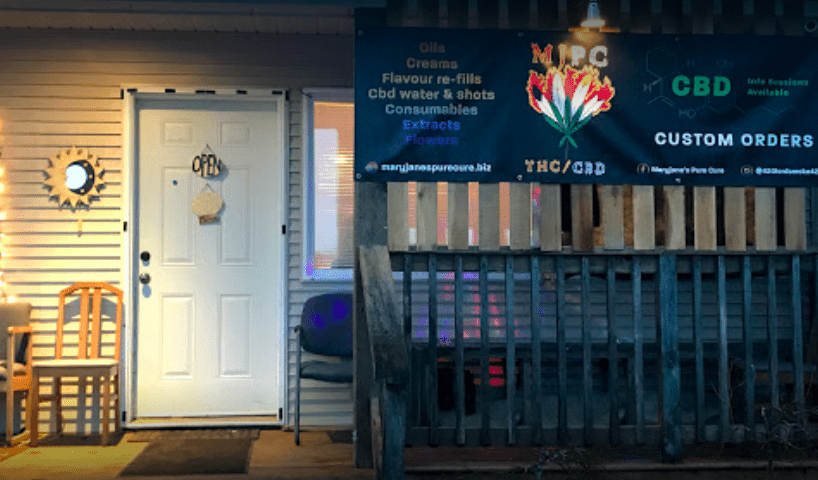
“We were basically informing – not asking, but informing – the federal-provincial government that us being indigenous and having our own laws, constitution, and taxation means we’ll be in charge of cannabis in our territory,” he said.
To the tribe’s liking, the senior officials present at the meeting held by Tyler Bob and his team seemed willing to support the tribe in their plan to open a cannabis dispensary. “They were here explaining that they had no idea in which direction First Nations are going to go and wanted to know how to be supportive to the movement.”
While this was initially promising, it didn’t take long for their team to run into hurdles.
“We had no help or support from the Canadian government. It was just our company pushing forward and finding market space to develop in,” said Tyler Bob. “Now, they’ve set things in place to prevent our shops from expanding in our territory and the provincial governments are trying to keep us tied to reservation lands.
Tyler Bob told us that some other shops in the area, along with the government, see them as a direct threat because they are absorbing quite a bit of the nearby competition. And they are not collecting tax.
“Rather than trying to generate shared revenues with governments that aren’t willing to share their revenues with us as well, we’ve just made donations into our community programs such as the youth, elders, and anybody in the community that needs help,” he added, noting that just because cannabis is doing well doesn’t mean it should be taxable.
A wide range of tribal cannabis experiences
It’s key to keep in mind that tribal communities are diverse and unique across the United States and Canada. One tribal cannabis experience does not speak for all of the unique nations across the land.
Adam Dewey, Director of Purchasing at Elwha Peaks Cannabis in Washington state, told us that “legally speaking, there is far more latitude with a tribal store than with a privately held i502 operation.”
Elwha Peaks Cannabis is located on the Olympic Peninsula and operates in accordance with an inter-governmental marijuana compact between the Lower Elwha Klallam Tribe and Washington State.
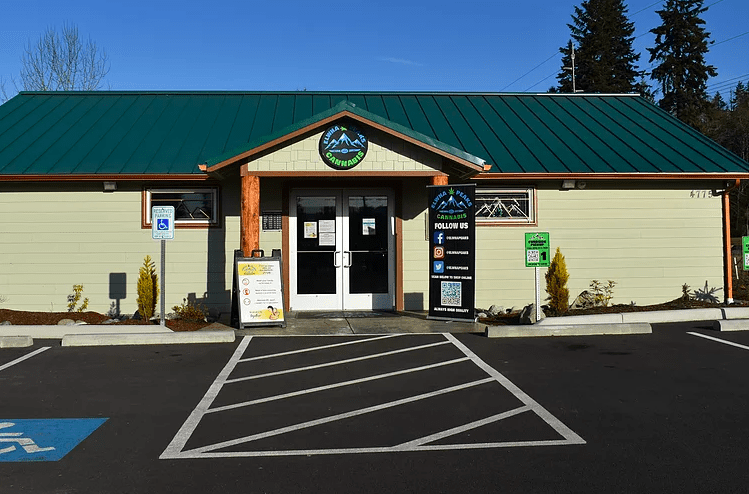
“We are on tribal/federal land, and as such, we have less interference from the liquor and cannabis board. With that being said, we instituted all i502 compliant protocols from day one. These are expected to be followed by all Lower Elwha Klallam Tribe employees,” said Dewey.
For the Lower Elwha Klallam Tribe, opening a cannabis dispensary opened many doors for the tribe to compete with other i502 stores and build a brand. And it changed the community’s relationship with the plant.
When Washington state legalized cannabis back in 2012, the Lower Elwha Klallam Tribe opted to not recognize the state’s legalization measure. Given they are their own sovereign nation, this made any amount of cannabis on tribal land illegal.
Eventually, the tribe decided to join the legal cannabis industry, leading to a provision that allows legal, inconspicuous cannabis consumption on the land. Their dispensary is wholly owned by the tribe, and all revenue goes to supporting their people.
“To date, it would appear that the Lower Elwha Klallam Tribe members have adopted cannabis both as a recreational alternative to alcohol, as well as a therapeutic agent, citing pain, anxiety, and stress relief as the main contributors.”
This is a common sentiment amongst tribes. For Tyler Bob and the Snaw-naw-as tribe, cannabis was widely accepted by the community long before legalization.
“It was more understood to be used as a plant-based medicine. We had a lot of aunties collecting and making creams and oils and whatnot since they were little, and their moms were doing it beforehand,” said Tyler Bob.
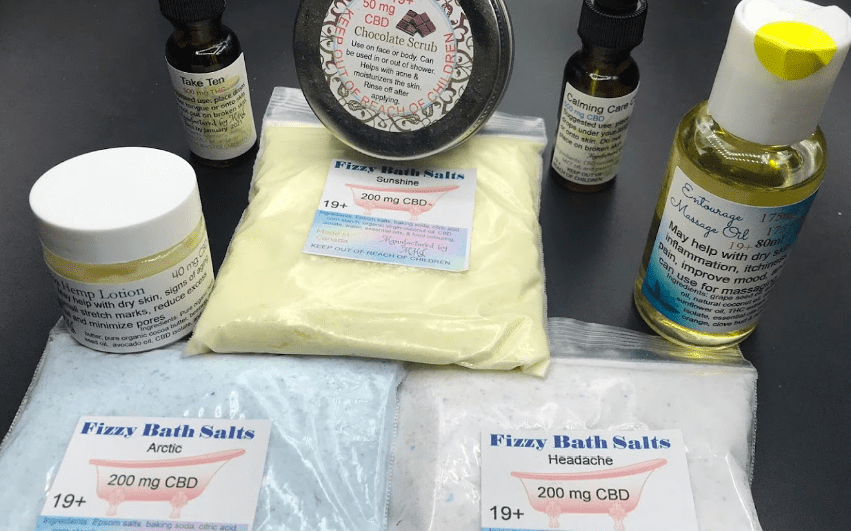
Today, the tribe is able to keep the tradition alive through their dispensary. But they’re not stopping there. Tyler Bob filled me in on his “Red Market” vision and what his tribe, in conjunction with other Canadian First Nations people, are doing to establish it.
Envisioning a “Red Market”
“The Red Market refers to First Nations products that are derived, developed, and grown by First Nations and manufactured by First Nations,” said Tyler Bob. “Right now, I’m trying to build the stigma away from sovereign shops being only ‘black market’ products.”
Due to limited budgets, some sovereign indigenous shops in Canada want to work with other sovereign nations to support and build one another up. The first step in this Red Market concept was the release of Mary’s Maps, an app that registers indigenous-only cannabis companies and provides pertinent details to shoppers.
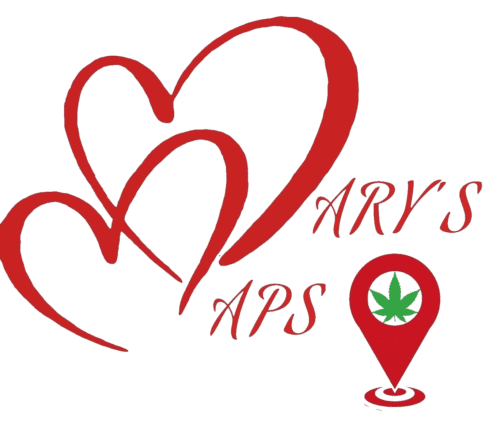
Tyler Bob doesn’t see borders getting in the way of the Red market’s expansion, and he enthusiastically noted that sovereign tribes are getting stronger with knowledge and will only continue to grow in the cannabis industry and beyond. He sees cannabis as one of the biggest opportunities his people will have in the next few lifetimes, and is excited about being part of a movement to provide sustainability and health education for generations to come.
Sowing sovereignty
As a whole, we can’t definitively say what is happening in the world of indigenous cannabis, largely because each tribe has its own unique set of customs, laws, and values. There’s no question that indigenous cannabis will continue to grow alongside, or sometimes separately from, the cannabis industry as a whole.
Indigenous communities are masters of caring for the land and its bounties, and the cannabis plant is no exception. The legal cannabis industry presents a large business opportunity for many tribal communities, but lack of support or regulatory hurdles have produced scattered, vastly different results from community to community.
Further, events like the recent cannabis bust on tribal land in New Mexico concern many who rely on their tribal government’s ordinances to protect them. Events like these highlight the legal discrepancies and hurdles that tribes face when they exercise their sovereignty.
But sovereignty is the overarching theme for what many of these tribes want with their indigenous cannabis businesses. After all, the money earned from tribal cannabis goes right back into the communities that produce it, creating a self-sustaining ecosystem.
As Tyler Bob puts it, “We are still owners of the land. For truth and reconciliation to take place, it must lead with the land. Because the lands are what the people take care of, and the lands also take care of the people.”


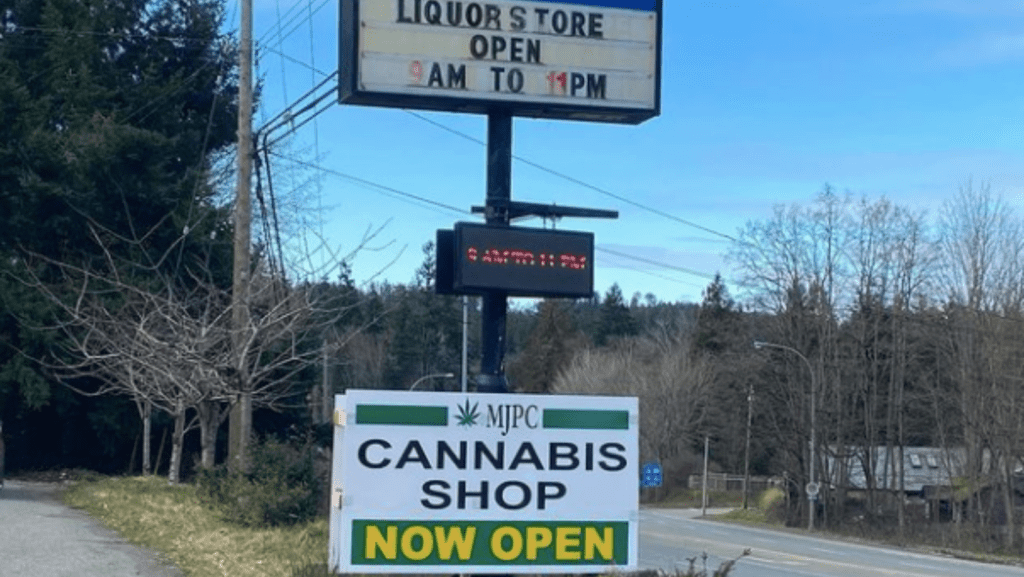



4 thoughts on “From seed to sovereignty: the varied states of indigenous cannabis”
Pingback: From seed to sovereignty: the varied states of indigenous cannabis - Dispensing Freedom
Pingback: First Americans LLC of Saint Regis Mohawk Tribe and AUDACIOUS to expedite New York retail cannabis sales - MJ Brand Insights
Pingback: Adult-use Montana cannabis sales have started - how is it going? - MJ Brand Insights
Pingback: The race to recreational sales: Five New York dispensaries to watch - MJ Brand Insights